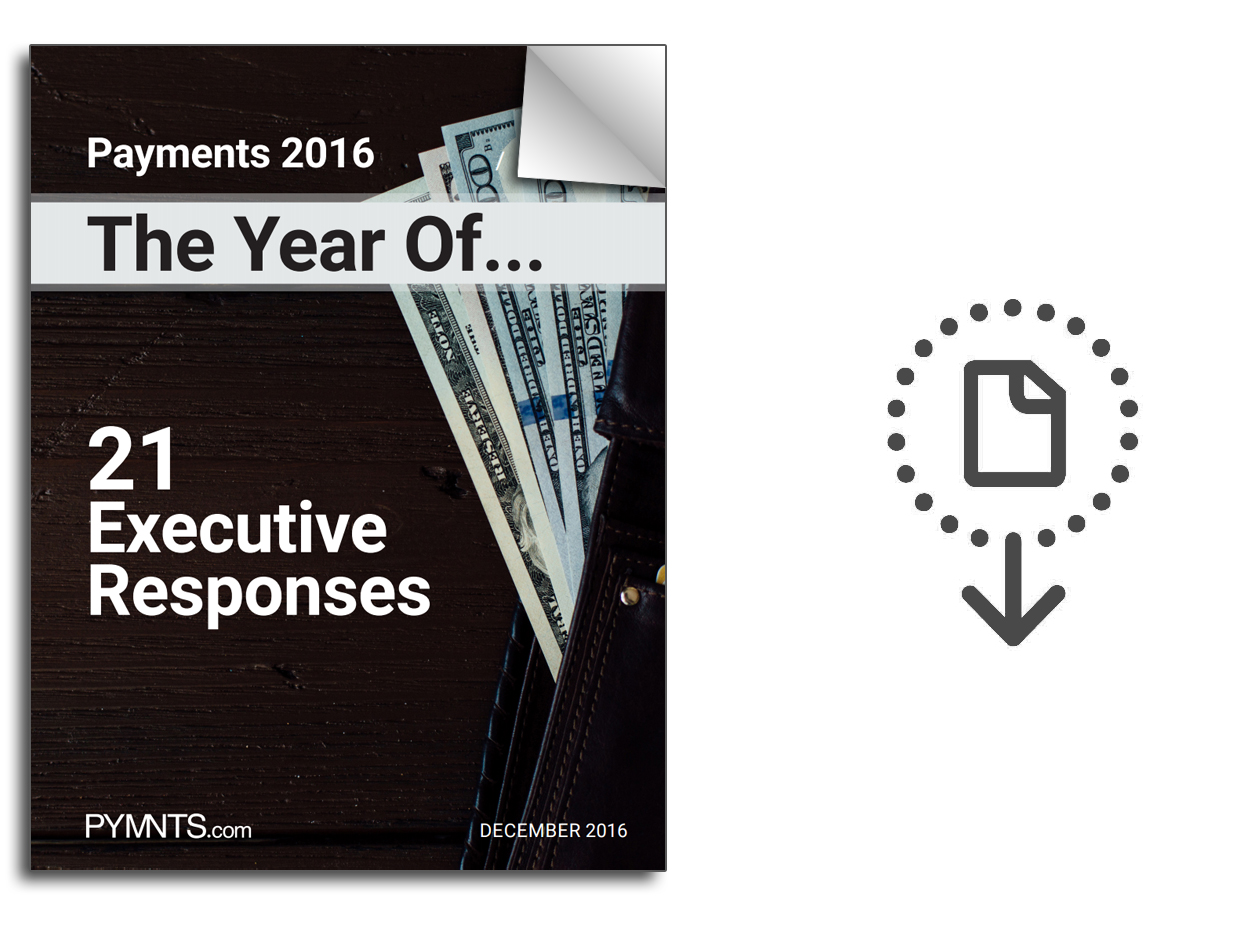Payments 2016: The Year Of Capitulation

PYMNTS consulted 21 payments executives from across the industry to share their insights on the biggest takeaways from 2016 as part of the “Payments 2016, The Year Of…” eBook. We posed the same question to each executive:
If you had to answer the question, Payments was the year of …, how would you answer, and how does your answer change your world — and the world of payments, more broadly?
Here is the response from Glen Fossella, acting CEO of Urban FT…
Payments 2016: The Year Of Capitulation
The year 2016 was the year of capitulation by FinTechs to the traditional banking industry. Truth be told, the word capitulation might be a bit harsh, but no harsher than the words used by financial institution (FI)–competing FinTechs that rattled their sabers during the first years of this decade, vowing to disrupt every FI in sight and render them irrelevant.
What I witnessed during the past year is a pivot by many of these FinTechs from a posture of “Watch out, Mr. or Ms. Banker, I’m going to eat your lunch” to “Let’s partner, my friend!” Reasons for the change? There are probably many, but these are my top bets:
- Tighter funding. FinTech investment is still strong but slowing, making funding harder to get. A third-quarter CB Insights Pulse report says venture capital investment in FinTech companies has dropped globally 52 percent year over year. Today’s investors are pickier, looking for quality over quantity, and more skeptical, realizing from experience that FinTechs generally aren’t one-to-two-year flips. In fact, the timeline to profitability may be five to 10 years down the road — and it may require multiple rounds of funding before hitting pay dirt.
So, why are FinTechs ditching their go-it-alone models in favor of partnering with FIs? Well, to quote legendary bank robber Willy Sutton, “Because that’s where the money is.” Don’t get me wrong — FIs are squeezing every dollar they sink into technology. But they also recognize the value of outsourced solutions, making them good prospects for buying promising FinTechs or partnering with them as software-as-a-service (SaaS) or platform-as-a-service (PaaS) providers, where each can bring its expertise to the table.
- Regulation. Bankers live and breathe regulation and over the years have developed the expertise and capacity to comply even in our complex and changing regulatory environment. Looking at banking from the outside, many FinTechs seriously underestimated the burden and cost of regulation or perhaps even failed to recognize that their activities put them under the regulatory umbrella. But with the always-present specter of an activist and aggressive Consumer Financial Protection Bureau and a wakeup call in the form of a $100,000 civil money penalty against Dwolla for a data security lapse in which no consumer harm was proven, FinTechs, it seems, have gotten religion. And sometimes when the hurdle is so high, it’s just better to join them than to try to beat them — in this case, letting banks do what banks are good at. I’m not missing the irony, however, that regulation — a huge challenge for FIs despite their experience and coping mechanisms — is serving as a barrier to encroachment by FinTechs.
- The realization that banking is hard. I’ll also hazard a guess that many FinTechs now seeking partnerships with FIs didn’t realize that banking is just plain hard. In addition to the regulatory issues, there are myriad additional issues — ranging from getting access to the “rails” to route transactions to security and fraud, not to mention the cost of customer acquisition and customer service. Do FinTechs want to reinvent all that infrastructure (even if it’s in the cloud) and assume day-to-day responsibility for functions like customer care? Many are coming to the realization that they don’t and shouldn’t. Again, let banks do what they know and do best. To wit, even the much-touted Moven bank alternative appears to have transitioned from a B2C focus to a B2B focus.
- Banking isn’t revolutionary. FinTechs looking to displace FIs also, I believe, underestimated that change in how consumers manage, save and spend their money is evolutionary, not revolutionary. The success of PayPal notwithstanding (which didn’t happen overnight, by the way), consumers are protective of their money, and mass adoption doesn’t happen instantly — even if a new solution offers advantages. This doesn’t mean consumers won’t change; clearly, they will. But change occurs on users’ timelines, which FIs are better able to weather than FinTechs.
Partnering and cooperation between FIs and FinTechs is the inevitable outcome of a period of intense technical innovation. It’s good for FinTechs to have the resource of FI partners so they’re not reinventing the wheel and potentially making mistakes that get them into regulatory hot water or, worse, mishandle people’s money. And it’s good to recognize that standalone FinTech unicorns, such as Stripe and Square, are the exceptions, not the rule. This wave of partnership and cooperation is an even a better outcome for FIs that need a continual infusion of new thinking and new technology that’s doesn’t always come out of an in-house operation — no matter how forward-thinking an FI’s IT group strives to be.
So does all this change my world? Well, yes and no. Yes, in that FinTechs and FIs are now talking in a way that may facilitate progress instead of gridlock. And no, because Urban FT was founded as a white-label solution for FIs, so our message is the same as it’s always been: We’re here to serve our banking partners, not to compete with them.
A new chapter is unfolding, written on the trials and successes of the past years. That’s what real innovation is all about.
. . . . . . . . . . . . . .
